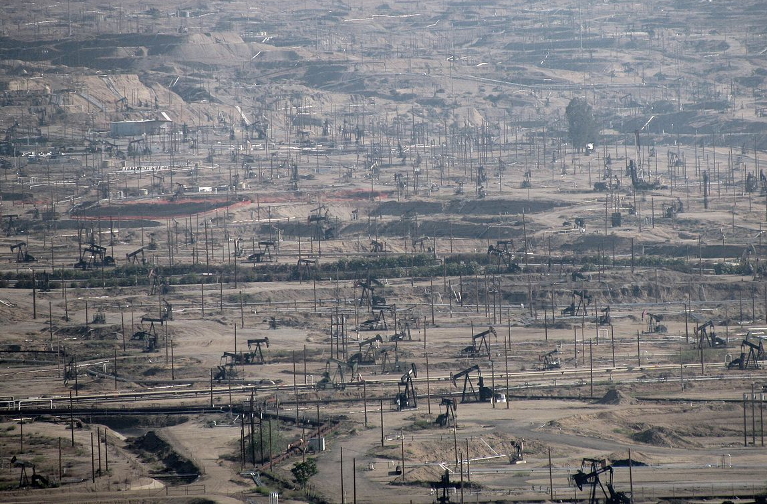The Trump administration’s anti-regulatory environmental agenda suffered a major blow this week, with a federal court ruling that the Environmental Protection Agency (EPA) could not suspend an Obama-era methane rule.
The rule limits methane emissions from new oil and gas operations and requires operators to submit to either semi-annual or quarterly emissions monitoring. It also requires operators report and fix any methane leaks in their equipment.
The United States Court of Appeals for the District of Columbia Circuit on Monday found that the EPA lacked the authority under the Clean Air Act to suspend the rule without undertaking the formal rulemaking process, which requires proposed rules to be published in the federal register and subject to a period of public comment. The court said that the agency’s suspension “is essentially an order delaying the rule’s effective date” and that “such orders are tantamount to amending or revoking a rule.” The court also found that the agency’s suspension was “arbitrary, capricious, [and] in excess of statutory . . . authority.”
The court ruled that the EPA would have to formally revoke the rule using the federal rulemaking process, which will take much longer than unilaterally suspending the rule and will open the agency up to public comment.
“This ruling declares EPA’s action illegal — and slams the brakes on [the] Trump administration’s brazen efforts to put the interests of corporate polluters ahead of protecting the public and the environment,” David Doniger, director of Natural Resources Defense Council’s Climate and Clean Air program, said in a press statement. “The ruling recognizes that EPA lacks the authority to simply scrap these critical protections. And it shows the courts are going to enforce the rule of law on health and environment.”
The rule was a primary target for EPA Administrator Scott Pruitt and the fossil fuel industry, which argued that oil and gas companies are already taking steps to limit methane emissions from their operations. In April, Pruitt penned a letter to oil and gas executives promising that he would use his authority to suspend the rule and that oil and gas companies would not need to comply with the requirements while the rule was suspended.
In June, Pruitt announced his intention to extend his original 90-day stay of the rule for two years, even while acknowledging that children — who are especially sensitive to air pollution — would be disproportionately impacted by the rule’s suspension.
Pruitt’s agency argued that since the suspension was limited, any adverse health impacts on children would also be limited — and it estimated the suspension would save the oil and gas industry $173 million.
The D.C. court’s ruling applies only to the original 90-day stay of the methane rule. The longer two-year stay is currently in a formal rulemaking process and is undergoing public comment before it is submitted as a final proposal. That suspension is also facing legal challenges — the same circuit court will hold a separate hearing on it — though the long-term suspension may potentially fare better in the courts since it is being conducted through official procedure.
In a comment to both the New York Times and the Washington Post, the EPA said that it was “reviewing the opinion and examining [its] options” in light of the ruling.
Still, environmental groups were heartened by the court’s decision that the Trump administration could not unilaterally suspend prior regulations without going through the formal rulemaking process.
“The court’s decision today is a vindication for individuals and communities who want better health and real action to prevent climate change,” Adam Kron, senior attorney for the Environmental Integrity Project, said in a press statement. “In attempting to halt and delay these important standards without any legal basis, EPA Administrator Scott Pruitt was putting his friends in the oil and gas industry ahead of his duty to all Americans. But the Clean Air Act and the rule of law carried the day today.”
The Obama administration finalized the rule in 2016, as part of its goal to reduce methane emissions from the oil and gas sector by 40 to 45 percent from 2012 levels by 2025. Natural gas is 80 percent methane, and numerous studies have found that methane leaks and emissions from natural gas production cancel out any climate benefit from burning the fuel in place of coal.
The EPA’s website describes the oil and gas industry as a “significant source” of methane pollution. Methane is an incredibly potent greenhouse gas, trapping 86 times more heat than carbon dioxide over a 20-year period.
Teaser photo credit: By Antandrus at English Wikipedia, CC BY-SA 3.0, https://commons.wikimedia.org/w/index.php?curid=16373401





